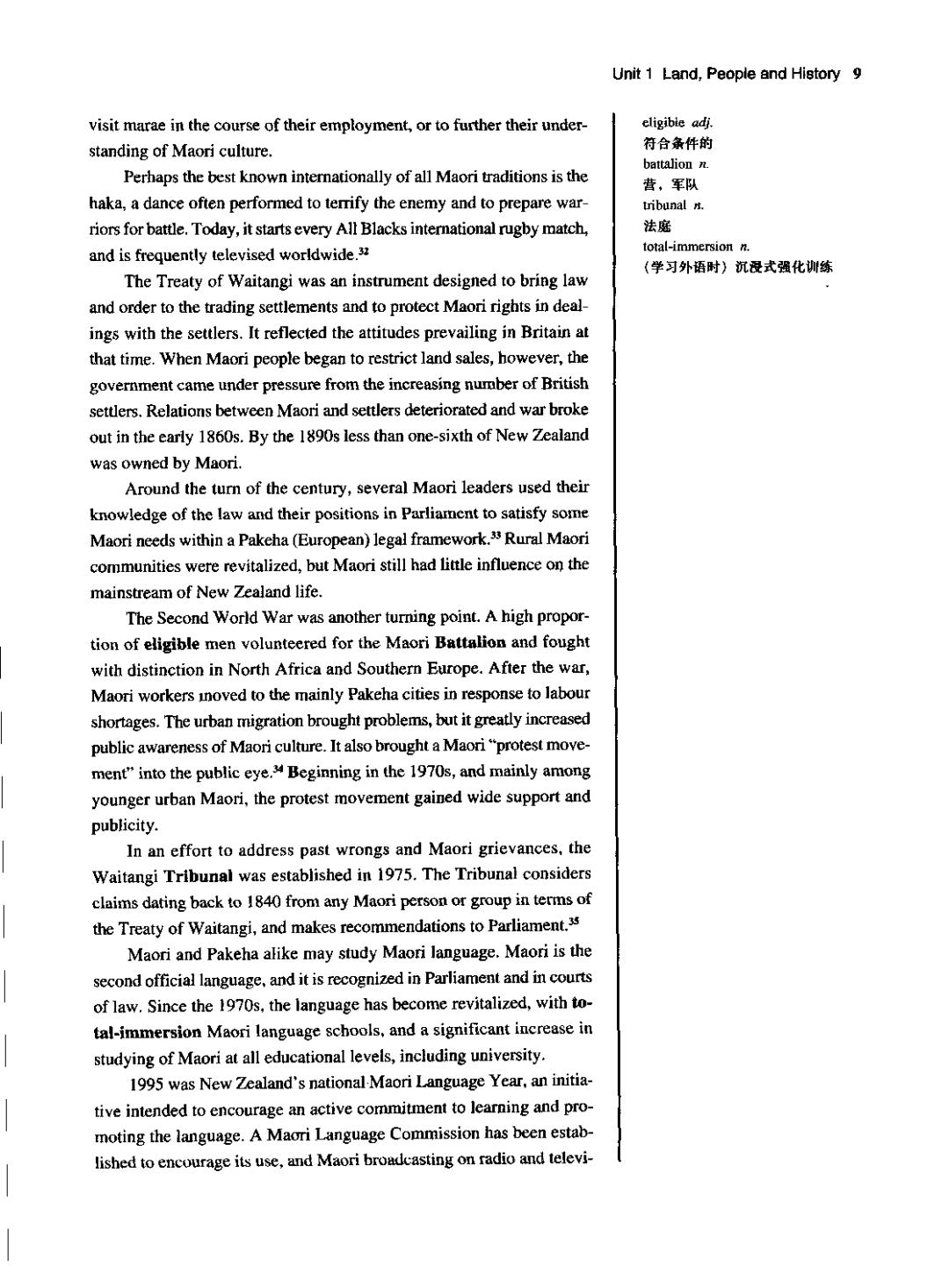正在加载图片...

Unit 1 Land,People and History 9 visit marae in the course of their employment,or to further their under- eligible adj. standing of Maori culture. 符合条件的 battalion n. Perhaps the best known internationally of all Maori traditions is the 营,军队 haka,a dance often performed to terrify the enemy and to prepare war- tribunal n. riors for battle.Today,it starts every All Blacks international rugby match, 法庭 and is frequently televised worldwide.3 total-immersion n. (学习外语时)沉没式强化训练 The Treaty of Waitangi was an instrument designed to bring law and order to the trading settlements and to protect Maori rights in deal- ings with the settlers.It reflected the attitudes prevailing in Britain at that time.When Maori people began to restrict land sales,however,the government came under pressure from the increasing number of British settlers.Relations between Maori and settlers deteriorated and war broke out in the early 1860s.By the 1890s less than one-sixth of New Zealand was owned by Maori. Around the turn of the century,several Maori leaders used their knowledge of the law and their positions in Parliament to satisfy some Maori needs within a Pakeha(European)legal framework.3 Rural Maori communities were revitalized,but Maori still had little influence on the mainstream of New Zealand life. The Second World War was another turning point.A high propor- tion of eligible men volunteered for the Maori Battalion and fought with distinction in North Africa and Southern Europe.After the war, Maori workers inoved to the mainly Pakeha cities in response to labour shortages.The urban migration brought problems,but it greatly increased public awareness of Maori culture.It also brought a Maori"protest move- ment"into the public eye."Beginning in the 1970s,and mainly among younger urban Maori,the protest movement gained wide support and publicity. In an effort to address past wrongs and Maori grievances,the Waitangi Tribunal was established in 1975.The Tribunal considers claims dating back to 1840 from any Maori person or group in terms of the Treaty of Waitangi,and makes recommendations to Parliament.35 Maori and Pakeha alike may study Maori language.Maori is the second official language,and it is recognized in Parliament and in courts of law.Since the 1970s,the language has become revitalized,with to- tal-immersion Maori language schools,and a significant increase in studying of Maori at all educational levels,including university. 1995 was New Zealand's national Maori Language Year,an initia- tive intended to encourage an active commitment to learning and pro- moting the language.A Maori Language Commission has been estab- lished to encourage its use,and Maori broadcasting on radio and televi-